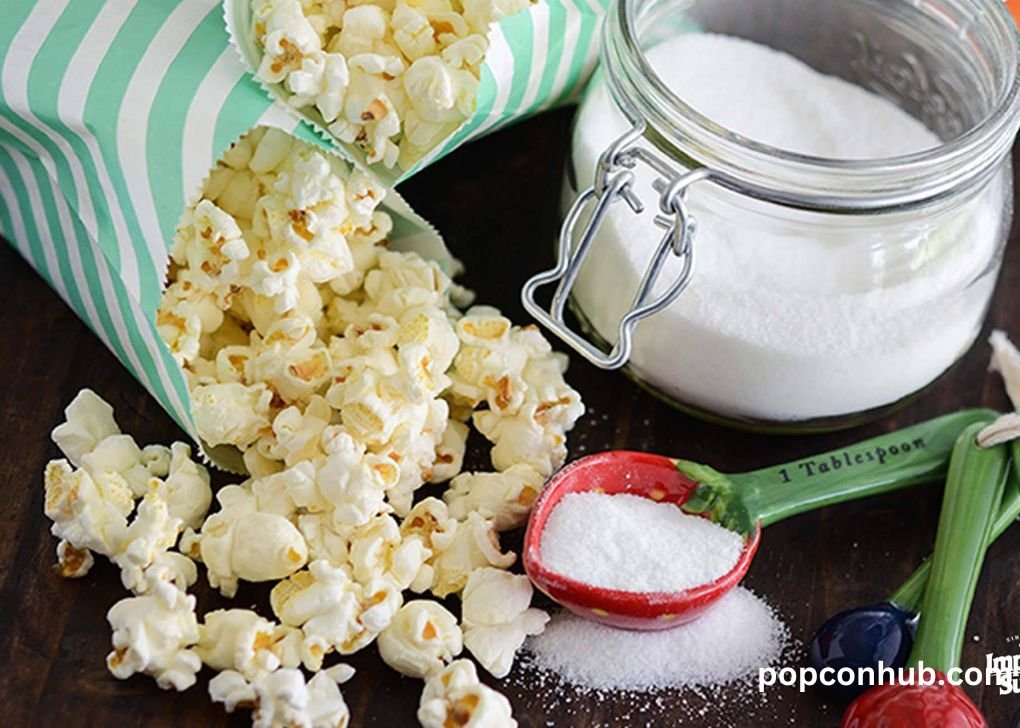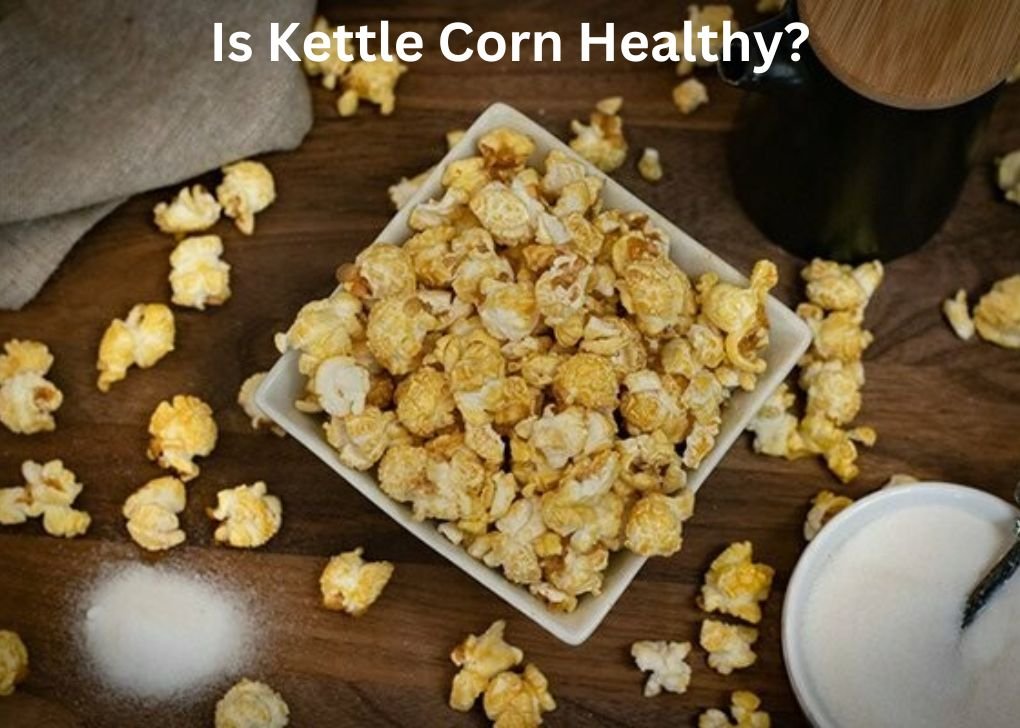In the world of snack foods, few treats elicit the same level of excitement as kettle corn. Its sweet and savory combination, coupled with its satisfying crunch, makes it a favorite among snack enthusiasts. But is kettle corn healthy? This age-old question often sparks debate, especially when compared to its healthier counterpart, air-popped popcorn. While kettle corn does offer some nutritional benefits, such as fiber and polyphenols from the popcorn, its high sugar and fat content can be concerning. In this article, we’ll explore the nutritional content of kettle corn, compare it to other snacks, and discuss whether it can be part of a healthy diet.
Is kettle corn considered a healthy snack option?
When pondering the healthiness of kettle corn, one must consider its components. While it may seem like a light and airy snack, its added sugar, vegetable oil, and salt content are factors to weigh. Considered in the context of a balanced diet, kettle corn can be a tasty treat, but its nutritional profile places it more in the category of an occasional indulgence rather than a healthy snack option.
Ingredients to be cautious about
When it comes to kettle corn, certain ingredients should be approached with caution. The added sugar in kettle corn is a key concern, as it can contribute to weight gain and an increased risk of obesity. Additionally, the use of vegetable oil, particularly processed sunflower oil, adds calories and omega-6 fats, which can lead to inflammation and have negative effects on heart health. The salt content, including added salt, can contribute to excessive sodium intake, raising blood pressure and increasing the risk of heart disease.
Some brands may use artificial sweeteners like sucralose, which can impact overall health and contribute to other health problems. Processed food like kettle corn often contains preservatives, additives, and other ingredients that can be harmful when consumed in excess. It’s important to be mindful of these ingredients and consume kettle corn in moderation.
Is Kettle Corn Healthier Than Popcorn?
When it comes to the age-old debate of kettle corn versus popcorn, the answer isn’t as straightforward as you might think. While both share the same base ingredient, their preparation methods and additional ingredients set them apart. Kettle corn, with its sweet and savory combination, has been enjoyed since the 18th century for its unique taste. It’s known for its addictive nature, making it a popular choice among snack enthusiasts.
On the other hand, traditional air-popped popcorn offers a lighter alternative. By air-popping corn and using minimal amounts of salt and sugar, you can create a healthier version of this classic snack. The nutritious benefits of popcorn are well-documented, with its low calorie count and high fiber content. However, the addictive nature of kettle corn often leads to overindulgence, which can negate its health benefits.
In terms of preparation, both kettle corn and popcorn offer healthier options. Air popping methods eliminate the need for oil, reducing the calorie count significantly. Choosing the right seasoning and cooking choices can help strike a good balance between a healthy snack and tastiness. It’s all about finding that perfect balance and enjoying these snacks in moderation.
Related Article: Ultimate Guide to Kettle Corn
Possible short-term side effects
While kettle corn can be a delightful treat, it’s important to be aware of its potential short-term side effects. The added sugar and calories in kettle corn can contribute to weight gain and an increased risk of obesity if consumed excessively. The salt content may lead to raised blood pressure and an increased risk of heart disease. Additionally, the omega-6 fats from vegetable oil can cause inflammation and have negative effects on heart health. It’s crucial to enjoy kettle corn in moderation to avoid these possible short-term consequences and maintain your overall health.
Possible long-term side effects
While kettle corn can be a tasty snack, indulging too frequently may lead to weight gain and increase the risk of obesity over time. The added sugar and salt content can contribute to inflammation, negatively impacting heart health and potentially leading to raised blood pressure and a higher risk of heart disease. Additionally, the calorie count and fat content in kettle corn may have negative effects on your overall health, possibly contributing to other health problems when consumed in excess. It’s important to enjoy kettle corn in moderation to avoid these harmful effects in the long term.
Healthy alternatives
When craving a snack, consider these healthy alternatives to kettle corn: air-popped popcorn is a low-calorie, whole grain option rich in fiber; roasted chickpeas provide protein and fiber for satiety; rice cakes are low in calories and can be paired with healthy toppings; Greek yogurt is high in protein and probiotics for gut health; and fruit salad offers natural sweetness and a variety of vitamins and minerals. These alternatives can satisfy your cravings while providing valuable nutrients, making them excellent choices for a balanced diet.
Is There a Lot of Sugar in Kettle Corn?
Kettle corn typically contains around 7 to 8 grams of added sugar per 28-gram serving, which is about the same as one half of a banana. However, some microwave kettle corn brands are sugar-free, using sucralose as a sweetener instead. It’s essential to check the nutrition labels and serving sizes to understand the sugar content and make informed choices about your snacks.

What Are the Benefits of Kettle Corn?
There are benefits of kettle corn, especially when compared to other (more unhealthy) snacks or regular buttered popcorn. It can make for a healthy snack choice, even if you want to watch your sugar intake. Kettle corn may even be healthier than regular popcorn, depending on what health factors you’re gravitating towards. If you’re watching the fat content or cholesterol, kettle corn is much better because it doesn’t contain so much fat and sodium. Keep in mind moderation is key. These benefits negate themselves when over-consumed. A healthy snack is a moderate snack, especially with something such as kettle corn that contains sugar.
Related Article: Is Popcorn a Healthy Snack? -Everything You Need to Know
Nutritional Content of Kettle Corn
Kettle corn is a snack that typically contains a mix of sugar and salt, providing a sweet and salty flavor profile. The base ingredient, popcorn, is a whole grain that offers fiber, which is beneficial for gut health. Additionally, popcorn contains polyphenols, B vitamins, and manganese, all of which contribute to its nutritional value. However, the exact nutritional content can vary based on the serving size and preparation method. It’s important to be mindful of portion sizes, especially if you’re watching your calorie or sugar intake. Overall, while kettle corn can be enjoyed as a tasty snack, it’s best to consume it in moderation as part of a balanced diet.
Is There a Lot of Sugar in Kettle Corn? Is Kettle Corn Popcorn Healthy?
Kettle corn can vary significantly in sugar content depending on where it’s sourced or how it’s made. Purchasing from a popcorn specialty store or opting for microwave kettle corn often results in a higher sugar and additive content. Flavors in specialty stores are typically designed to be indulgent, pushing the sugar levels up.
Similarly, microwave options can be laden with sugars, often disguised under different names in the ingredients list. However, if you make kettle corn at home, you can control the amount and type of sugar added, making it a healthier option. Moderation is key, and being mindful of the ingredients can help you enjoy this snack without exceeding your daily sugar intake.
Related Article: Can You Eat Popcorn After Tooth Extraction?
Why is Kettle Corn So Addictive?
Kettle corn is often considered addictive due to its sugar content and the way our bodies respond to it. Our bodies naturally crave sugar, and when we consume it, we tend to crave even more. This cycle, especially for those with a sweet tooth, can be difficult to break. Additionally, kettle corn is both sweet and salty, which satisfies both types of cravings simultaneously. The combination of textures, with its tender yet crunchy nature, makes it a delightful snack. It’s also easy to make, relatively inexpensive, and a popular choice for snack time.
Conclusion
while kettle corn can be a delicious and satisfying snack, its healthiness depends on various factors such as portion size, preparation method, and added ingredients. Compared to regular popcorn, kettle corn tends to have higher sugar and fat content, which can be concerning if consumed in excess. However, when enjoyed in moderation as part of a balanced diet, kettle corn can still be a tasty treat. It’s essential to be mindful of the ingredients used, opt for healthier preparation methods like air-popping, and consider healthier snack alternatives when possible. Ultimately, enjoying kettle corn in moderation can be a part of a healthy lifestyle.
FAQs
Is Kettle Corn Popcorn a Carb?
Yes, kettle corn is a carbohydrate-rich snack. A 2-cup serving typically contains about 100 to 150 milligrams of sodium, which is similar to the sodium content in a handful of salted nuts. However, it would take about 10 servings of kettle corn to approach the American Heart Association's (AHA) ideal limit of 1,500 mg of sodium per day.
Is Kettle Corn Good for Weight Loss?
Kettle corn has more calories per cup than regular popcorn, mainly due to the added sugar. This means that kettle corn may not be as good for weight loss compared to regular popcorn. However, you can still include kettle corn in your diet if you're mindful of your portion sizes.
Is Kettle Corn Vegan?
Kettle corn is typically vegan. Out of all the popular brands of kettle corn I checked, all seven were vegan. They contain no dairy, egg, honey, or other animal products.
Is Microwave Kettle Corn Healthy?
Microwave kettle corn is often sugar free, but unfortunately, it contains the controversial artificial sweetener sucralose instead. Microwave kettle corn is usually made with palm oil instead of sunflower oil, which adds saturated fat, too. Overall, microwave kettle corn is not very healthy.
How Much Sodium Is in Kettle Corn?
Kettle corn typically contains about 100 to 150 milligrams of sodium per 2-cup cup serving, which is about the same as a handful of salted nuts. It would take approximately 10 servings of kettle corn to approach the American Heart Association's ideal limit of 1,500 milligrams of sodium per day.
